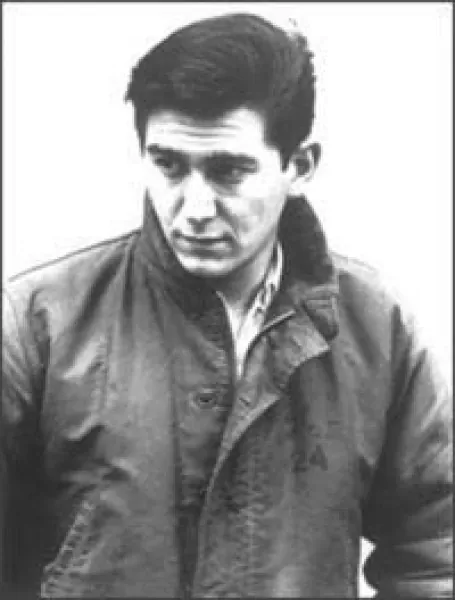
Phil Ochs
Top Phil Ochs albums
Top Phil Ochs lyrics
All Quiet On The Western Front
Phil OchsBach, Beethoven, Mozart And Me
Phil OchsPhil Ochs biography
Singer/songwriter Phil Ochs was a self-coined "singing journalist" when he began performing in New York in the early '60s. Like Bob Dylan, the rival who always outpaced him, Ochs made his reputation singing topical protest songs. He stayed with them much longer than Dylan (and indeed would never really abandon them), but eventually he too would follow Dylan into electric music and more personal, abstract, and romantic compositions. Ochs came off as a perennial second-best to critics during his heyday. It was only after his tragic tailspin and eventual d**h that he was properly appreciated as one of the most sincere and humane songwriters of his day, whether detailing political atrocities or more poetic concerns.br /br /Ochs moved from Ohio to New York in the early '60s, and was soon a prolific writer of the topical, left-leaning protest songs then in vogue. His initial recording efforts, heard on compilations for Broadside, Folkways, and Vanguard, were rather dry and instantly dated. By the time made his Elektra debut in 1964 with All the News That's Fit to Sing, Ochs was finding his own voice -- more melodic than Dylan (if not as lyrically innovative), its strident accusations tempered by a warm delivery and underlying compa**ion. With second guitar by Danny Kalb (later of the Blues Project), his first album was highlighted by "Power and the Glory" and "Bound for Glory," as well as an adaptation of Edgar Allan Poe's "The Bells." The similar follow-up I Ain't Marching Any More (1965) gave the anti-war movement two rallying calls with the title track and "Draft Dodger Rag," along with a moving civil-rights piece, "Here's to the State of Mississippi."br /br /Ochs addressed all manner of anti-war, civil rights, labor, and social justice issues on his first albums, the best of which was In Concert (1966). Ochs' social criticism was deepening in acuity, as heard on "Canons of Christianity," "Cops of the World," and the satirical "Love Me, I'm a Liberal." But he also began to move into non-political subjects with equal or greater effect, as on "There But for Fortune" and "Changes," his most famous love song.br /br /In Concert was Ochs' final acoustic album. He'd already moved into electric rock with a fine (though flop) single-only version of "I Ain't Marching Anymore." In 1967, he broke from his acoustic folk troubadour image with a vengeance, leaving Elektra for A&M and moving to Los Angeles. There he plunged into Baroque folk-rock, with mixed results. Some of the tracks on his late-'60s A&M records are among the best he ever did, especially the devastating social apathy parody "Outside a Small Circle of Friends." On others, he seemed to be overreaching or straining for highbrow poetry. The L.A. session production sometimes enhanced his musical settings, but the more elaborate and pretentious arrangements worked against the material just as often.br /br /Ochs hadn't forsaken his political commitments, appearing at the violence-riddled 1968 Democratic Convention in Chicago. By 1969's Rehearsals for Retirement, some weariness and disenchantment with idealism was beginning to seep into both his compositions and his singing. The problems became more acute with 1970's facetiously titled Greatest Hits, when the standard of his material began to drop noticeably.br /br /Although it wasn't foreseen at the time, Greatest Hits was his last studio album. Ochs did remain active, recording a live LP (initially released only in Canada) that excited controversy with its strange mix of original songs and unexpected covers of old rock & roll tunes by Elvis Presley and Buddy Holly, performed in a gold lame suit. The '50s revival act was received poorly by an audience accustomed to a folkie troubadour, but that was among the least of Ochs' obstacles. His well of original compositions had run dry, and he was developing severe alcohol and psychological problems. In a mysterious mugging incident in Africa, his voice was permanently damaged.br /br /Ochs did record a couple of flop singles in the early '70s, but by the middle of the decade he was largely inactive, and afflicted with serious depression. In early 1976, he hanged himself at his sister's suburban home. ~ Richie Unterberger, All Music Guide
